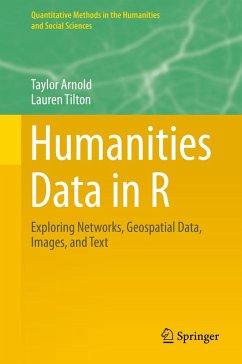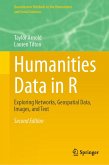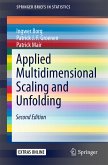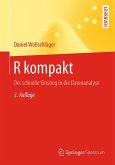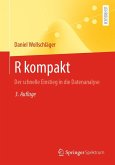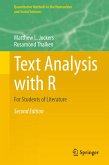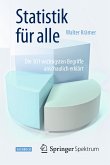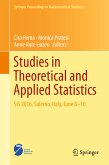Dieser Download kann aus rechtlichen Gründen nur mit Rechnungsadresse in A, B, BG, CY, CZ, D, DK, EW, E, FIN, F, GR, HR, H, IRL, I, LT, L, LR, M, NL, PL, P, R, S, SLO, SK ausgeliefert werden.
Matthew L. Jockers, University of Nebraska-Lincoln; author of Text Analysis with R for Students of Literature (Springer, 2014)
This is the first book that covers analysis of all main parts of humanities data: texts, images, geospatial data, and networks. Now digital humanities finally has its perfect textbook. This is the book many of us were awaiting for years. It teaches you R (the most widely used open source data analysis platform today worldwide) using many examples. The writing is very clear, and information is organized in a logical and easy to follow manner. Whether you are just considering working with humanities data or already have experience, this is the must read book.
Lev Manovich, The Graduate Center, City University of New York; author of The Language of New Media (MIT, 2001)
This book gives a concise yet broadly accessible introduction to R, through the lens of exploratory data analysis, coupled with well-planned forays into key humanities data types and their analysis -- including a nice primer on network analysis.
Eric D. Kolaczyk, Boston University; author of Statistical Analysis of Network Data with R (Springer, 2014)

